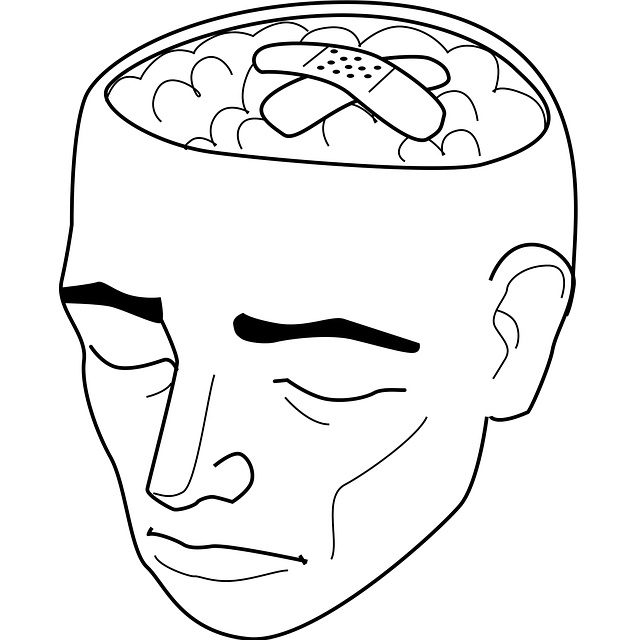Mental health crisis hotlines offer vital, confidential support for adolescents, staffed by trained professionals providing immediate assistance. These services include psychological testing and tailored therapy over the phone, addressing anxiety, depression, trauma, and promoting resilience through evidence-based practices like CBT and mindfulness. By combining testing with targeted interventions, these programs foster emotional intelligence, healthy coping mechanisms, and long-term mental well-being for young individuals.
“In today’s fast-paced world, mental health crises among adolescents and teens are on the rise, emphasizing the critical need for accessible support services. This article explores the vital role of mental health crisis hotline support, offering a lifeline to young individuals grappling with emotional turmoil. We delve into understanding these hotlines, their effectiveness in emergency psychological testing, and the subsequent access to tailored therapy. Furthermore, it highlights crisis response strategies, providing insights into interventions and prevention methods for optimal adolescent mental health care.”
- Understanding Mental Health Crisis Hotlines: A Lifeline for Adolescents and Teens
- The Role of Psychological Testing in Emergency Support
- Accessing Therapy: Options for Adolescent Mental Health Care
- Crisis Response Strategies: Effective Interventions and Prevention
Understanding Mental Health Crisis Hotlines: A Lifeline for Adolescents and Teens

Mental health crisis hotlines are a critical resource for adolescents and teens facing emotional distress or mental health challenges. These dedicated support services provide immediate assistance, offering a confidential space to express concerns and receive guidance. Often staffed by trained professionals, including psychologists and counselors, the hotline offers a listening ear and expert advice tailored to young people’s unique needs.
For many teens struggling with issues like depression prevention, mood management, or low self-confidence, these hotlines serve as a lifeline. They can provide initial psychological testing and assessments to identify underlying problems, offering therapy for adolescent teens right over the phone. The support is designed to be accessible, ensuring that young individuals in crisis have quick access to tools for boosting confidence and navigating their emotional well-being, all while maintaining privacy and anonymity.
The Role of Psychological Testing in Emergency Support

In emergency support scenarios, psychological testing plays a pivotal role in understanding and addressing an individual’s mental health crisis. These evaluations are crucial for tailoring immediate interventions to specific needs, especially among adolescent teens who often present unique challenges. By employing comprehensive assessment tools, professionals can identify underlying issues like anxiety, depression, or trauma that may be contributing to the crisis. This allows for targeted therapy sessions incorporating effective communication strategies and conflict resolution techniques, designed to provide both short-term relief from distressing symptoms and long-term coping mechanisms.
Psychological testing provides a structured framework to guide therapists in developing personalized treatment plans. Through these assessments, adolescents can receive the appropriate therapy, whether it’s individual counseling, group therapy, or family interventions. By integrating evidence-based practices, mental health professionals ensure that support services not only address the present crisis but also foster resilience and promote healthy development.
Accessing Therapy: Options for Adolescent Mental Health Care

Accessing appropriate therapy is a pivotal step for adolescent teens navigating mental health crises. With increasing awareness and destigmatization efforts, various options have emerged to cater to unique needs. One approach involves psychological testing, which can provide valuable insights into an individual’s mental state. These assessments are conducted by qualified professionals who specialize in youth psychology, enabling them to tailor interventions accordingly.
For instance, therapy sessions can be tailored to teach mindfulness meditation techniques, a powerful tool for mood management. Alternatively, risk assessment protocols ensure that mental health professionals are equipped to handle severe cases or those with higher risks of self-harm. By combining these strategies, support services aim to offer comprehensive care, fostering resilience and healthier coping mechanisms in young individuals.
Crisis Response Strategies: Effective Interventions and Prevention

Effective crisis response strategies are pivotal in addressing mental health issues, especially for vulnerable groups like adolescent teens. Hotline support services play a crucial role in providing immediate assistance and guiding individuals towards long-term recovery. One of the key interventions is therapy tailored to meet the unique needs of teens, incorporating evidence-based practices such as cognitive-behavioural therapy (CBT) and mindfulness techniques. These therapeutic approaches empower young people to manage their emotions, challenge negative thought patterns, and develop healthy coping strategies.
Additionally, crisis response programs can incorporate compassion cultivation practices and empathy building strategies to foster supportive environments. Encouraging emotional intelligence through education and role-playing allows individuals to recognize and regulate their emotions effectively. By combining these interventions with psychological testing and assessment, hotline support services can offer comprehensive solutions, ensuring adolescents receive the best care possible during times of crisis and promoting resilience in their mental health journey.
Mental health crisis hotline support services play a pivotal role in providing immediate assistance and guiding adolescents and teens toward long-term well-being. By combining psychological testing with access to diverse therapy options, these hotlines offer comprehensive care tailored to the unique needs of young individuals. Effective crisis response strategies not only address immediate concerns but also focus on prevention, ensuring that teens have the tools to navigate future challenges. Ultimately, investing in these services is essential for fostering resilient and thriving adolescent communities.














